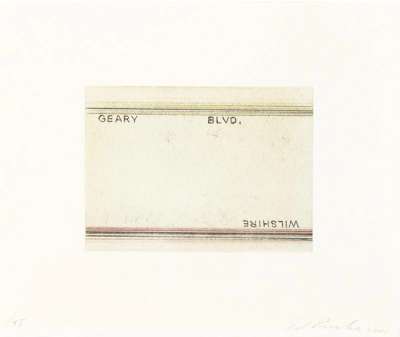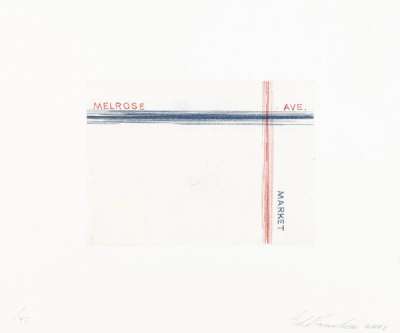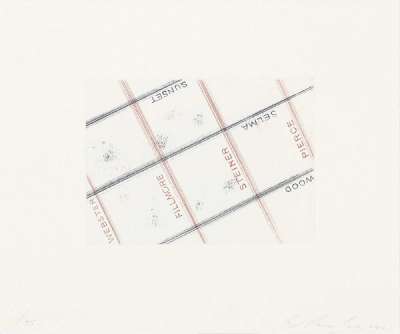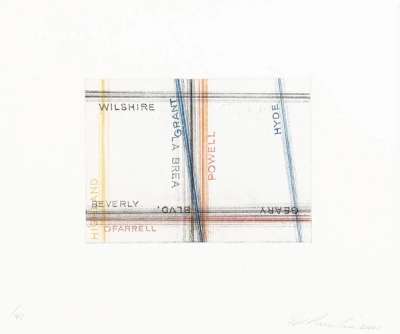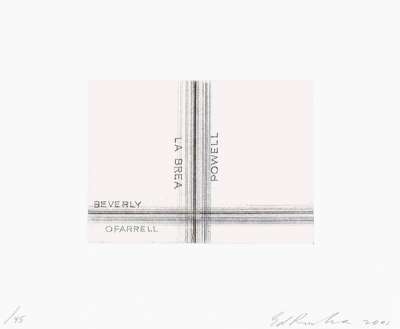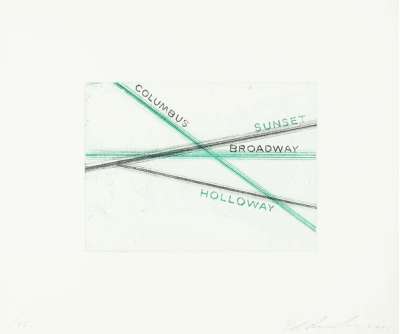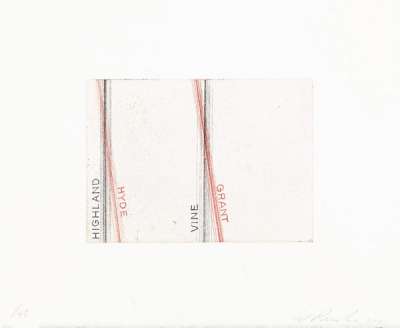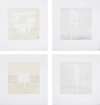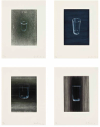Los
Francisco, San Angeles
In the Los Francisco, San Angeles print series, Ed Ruscha crafts an imaginative confluence of two iconic cities, San Francisco and Los Angeles. Made in 2001, this series melds geographical and cultural elements of both locales into singular, hybridised landscapes, inviting contemplation on the essence and identity of urban spaces in the American West.
Ed Ruscha Los Francisco, San Angeles For sale
Los Francisco, San Angeles Value (5 Years)
Sales data across the Los Francisco, San Angeles series by Ed Ruscha varies by print. While standout works have sold at auction for up to £3097, other editions in the series remain rare to market or have yet to appear publicly for sale. Of those tracked, average selling prices have ranged from £1858 to £3097, with an annual growth rate of 4.44% across available data. Collectors should note the discrepancy in performance between more visible and lesser-seen editions when considering value potential in this series.
Los Francisco, San Angeles Market value
Auction Results
| Artwork | Auction Date | Auction House | Return to Seller | Hammer Price | Buyer Paid |
|---|---|---|---|---|---|
 Geary, Wilshire Ed Ruscha Signed Print | 26 Feb 2025 | Christie's New York | £2,168 | £2,550 | £3,450 |
 La Brea, Powell Ed Ruscha Signed Print | 23 Jul 2024 | Christie's New York | £1,488 | £1,750 | £2,350 |
 Sunset, Pierce Ed Ruscha Signed Print | 23 Jul 2024 | Christie's New York | £2,465 | £2,900 | £3,900 |
 Highland, Hyde Ed Ruscha Signed Print | 23 Jul 2024 | Christie's New York | £1,700 | £2,000 | £2,750 |
 Wilshire, Grant Ed Ruscha Signed Print | 23 Jul 2024 | Christie's New York | £1,828 | £2,150 | £2,950 |
 Melrose, Market Ed Ruscha Signed Print | 23 Jul 2024 | Christie's New York | £1,488 | £1,750 | £2,350 |
 Columbus, Sunset Ed Ruscha Signed Print | 23 Jul 2024 | Christie's New York | £2,338 | £2,750 | £3,700 |
Sell Your Art
with Us
with Us
Join Our Network of Collectors. Buy, Sell and Track Demand
Meaning & Analysis
Ed Ruscha's Los Francisco, San Angeles series stands as a vibrant exploration of urban identity, memory, and the constructed nature of place. Through artworks such as Sunset, Pierce and Wilshire, Grant, Ruscha presents an innovative blend of street names and locations from San Francisco and Los Angeles, cities synonymous with distinct but intertwined narratives of American culture, innovation, and landscape. This merging serves not only as a visual play but also as a conceptual inquiry into the fluidity of urban environments and the collective memories that define them.
Each artwork in the series juxtaposes street names from the two cities, creating fictitious intersections that challenge the viewer’s perceptions of space and place. This approach reflects Ruscha’s interest in the architecture of language as much as in the physical architecture of cities. By blurring the lines between these iconic locales, Ruscha invites us to consider the ways in which urban spaces are constructed, both literally and in the imagination of their inhabitants and those who dream of them from afar.
The series delves into themes of mobility, transition, and the ephemeral nature of cityscapes, which are constantly being rewritten and reimagined through the movements of their dwellers and the evolving narratives that surround them. The hybrid city names suggest a sense of longing and displacement, evoking the transitory experiences of those who navigate these urban spaces.
Moreover, Ruscha's choice of medium and technique further enriches the series' exploration of urban themes. His use of stark contrasts, precise typography, and the interplay of light and shadow imbue the works with a sense of both familiarity and alienation, mirroring the complex relationships people have with the cities they inhabit or visit.
